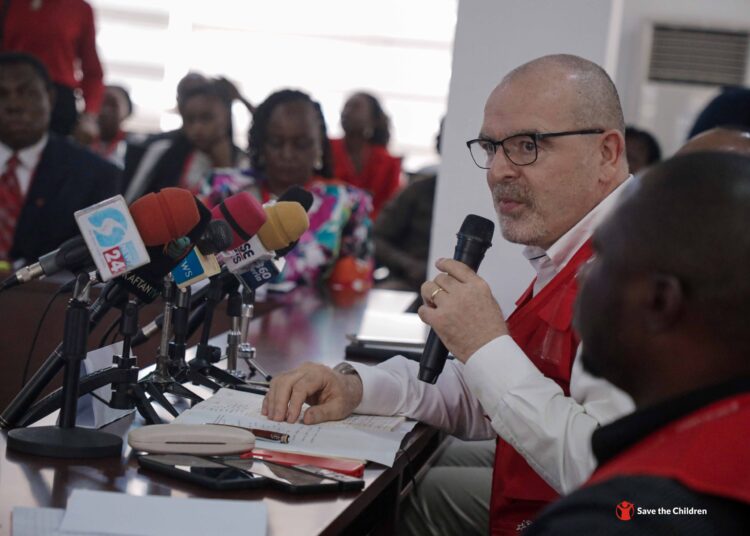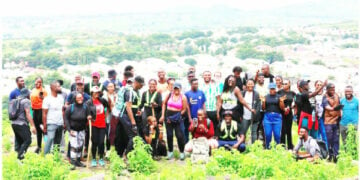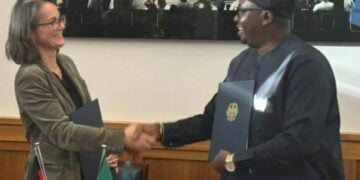Save the Children International Nigeria has raised an urgent alarm over the recent catastrophic flooding in Borno State, describing it as one of the worst in 30 years.
The flooding, which has affected more than 400,000 people, has left countless children and families displaced, without shelter, access to healthcare, clean water, or food.
Speaking at a press briefing in Abuja yesterday, Country Director of Save the Children Nigeria, Mr. Duncan Harvey,
highlighted the severity of the situation following his visit to Maiduguri, the capital of Borno State, last week.
“The devastation I witnessed in Maiduguri is alarming. Families are struggling in overcrowded and unsanitary conditions in makeshift camps. Immediate action is needed to address the urgent needs of children and families affected by this disaster,” Harvey stated.
The floods have caused significant damage, with at least 37 people confirmed dead and 58 others injured. The Borno State government’s Emergency Operations Centre reports that over 300,000 people have already been registered at 26 relocation sites, with registration continuing in additional sites.
Access to critical infrastructure such as hospitals and markets has been severely hampered. One of Nigeria’s largest hospitals, the Maiduguri Teaching Hospital, has been heavily damaged, further exacerbating the healthcare crisis in the state. Schools across the region remain closed, with many being used as temporary camps for displaced persons.
The flooding has occurred during the peak of the lean season, heightening the risks of food insecurity and malnutrition. In addition to the immediate need for food and clean water, there are growing concerns about the spread of waterborne diseases, including cholera, and the increasing prevalence of malaria due to widespread open defecation and stagnant water in the camps.
In response, Save the Children has initiated an urgent humanitarian intervention, drawing on over a decade of experience in the region.
The organization is providing life-saving support, including Multipurpose Cash Assistance (MPCA) to affected households, health and nutrition outreach services, and the rehabilitation of sanitation facilities.
To address the mental health challenges posed by the crisis, Save the Children is also offering psychological first aid and psychosocial support to children and caregivers in the camps.
However, Harvey stressed that the scale of the crisis requires more support.
“We are working closely with the Borno State government, the United Nations, and other international NGOs, but we need a more coordinated and robust response to meet the needs of those affected. Tomorrow, I’ll be meeting with the humanitarian country team to ensure that we are maximizing our resources to save lives, particularly those of vulnerable children.”
Save the Children has called on both the Borno State and Federal Governments to create an enabling environment for humanitarian actors to effectively carry out life-saving interventions. The organization currently has 200 staff on the ground working tirelessly to provide immediate relief to the flood-affected communities.





